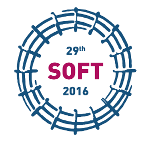Speaker
Hyun Soo Tho
(Strategy Division)
Description
This paper is focused on the analysis of spillover benefits of the ongoing R&D program on nuclear fusion in Korea. The spillover effects are understood here as positive externalitiesof publicly funded R&D activities that may be revealed at the companies’ level in the form of newly created knowledge stock; development of innovative products/ processes with broader market applications; strengthening of R&D, manufacturing and marketing capabilities; etc. And this study critically reviews the literature on the economic benefits of publicly funded basic research. In that literature, two main methodological approaches have been adopted —surveys and case studies. These studies have also highlighted the importance of spillovers and the existence of localization effects in research. From the literature based on surveys and on case studies, it is clear that the benefits from public investment in basic research can take a variety of forms. We classify these into seven maincategories, reviewing the evidence on the nature and extent of each type. The results demonstrate that KSTAR programs have relatively outstanding performance in seven categories: (1) increasing the stock of useful knowledge; (2) training skilled graduates and researchers; (3) creating new scientific means and methodologies; (4) forming networks and stimulating social interactions; (5) reinforcing the capacity for scientific and technological problem-solving; (6) creating new firms; and (7) access to scientific facilities. In particular, those projects were observed to form an industrial ecosystem for nuclear fusion that extends to the accelerator sector, in the category of creating new firms, while making a significant contribution to training talented researchers and expanding social networks as well. We reconsider the rationale for government funding of basic research, arguing that the traditional ‘market failure’ justification needs to be extended to take account of these different forms of benefit from basic research.
Co-authors
Han Soo Chang
(Strategy Division, National Fusion Research Institute, Deajeon, South Korea)
Hyun Soo Tho
(Strategy Division, National Fusion Research Institute, Deajeon, South Korea)
Won Jae Choi
(Strategy Division, National Fusion Research Institute, Deajeon, South Korea)
You Bean Kim
(Strategy Division, National Fusion Research Institute, Deajeon, South Korea)

